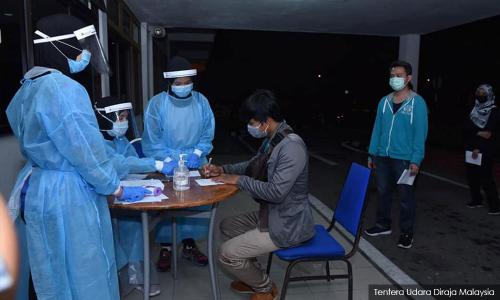LETTER | Keeping families of essential workers safe during Covid-19
LETTER | While the world confronts the invisible enemy called Covid-19, nations went into containment and lockdowns, with the necessary but painful step of also classifying working people into essential workers and non-essential workers.
Non-essential workers will either work from home (WFH), or stay home if their employment is such that they cannot work from home. This classification allowed nations to reduce the potential infection in the community with as few workers in public as possible.
Essential workers are on the frontlines putting themselves at potential risk, thereby allowing our society to continue meeting minimal and critical capabilities, typically in healthcare, banking, public transport, utilities, logistics, police, civil defence, and other crucial areas.
However, they are not the only people at risk. They are often very concerned about their loved ones, whether or not inadvertently they may bring this contagious disease home.
What can an essential worker do to keep their families safe during the lockdown?
Four safety tips for essential workers
The first step an essential worker can do is to take the necessary steps to protect himself/herself from infections.
1. Wear the appropriate PPE
Depending on the job function, an essential worker may have to wear the full complement of personal protective equipment (PPE). Health sector workers who work directly with Covid-19 patients are required to wear an eye shield, visor or goggles, filtering face-piece respirator, gloves, and a long-sleeved fluid-repellent gown. Anyone who is not in direct contact with Covid-19 patients can use gloves, a mask, and an apron, depending on their level of exposure to the general population.
2. Wash hands regularly during the day
Experts continue to emphasise that washing your hands is one of the most effective ways to avoid infections.
3. Keep hands away from the face
This is crucial for essential workers. Human beings touch their face on an average of about 16 times per hour. During this pandemic, those who are most exposed should try to break the habit. Keeping fingers laced together or wear a strongly scented hand sanitiser to discourage touching the face.
4. Put personal items away until after work
Items such as phones, keys, and wallets should be kept in a locker or bag until after the work shift. This will help to limit contamination during the course of the day.
Three risk-reducing protocols after work
After work or a shift, an essential worker can adopt three protocols which help to reduce potential infections at home.
1. Take off clothes upon entering home
Work clothes are potentially contaminated. So essential workers should remove their clothing and put them in a bag, separate from the laundry basket. Shoes should also never make it into the home if possible. Otherwise, sanitise them before bringing them in the house.
2. Sanitise items that must come back into the house
Items like phones, keys, handbags, backpacks should be sanitised before bringing them into the home.
3. Shower immediately
Essential workers should head to the shower immediately to eliminate or minimise any risk of contamination at home.
Two best ways to keep loved ones safe
Social distancing is frequently mentioned as one of the primary methods to reduce the spread of infections. Essential workers can adopt either one of these:
1. Maintain social distancing
Unfortunately, essential workers should refrain from hugging and kissing family members at this time. This can be especially difficult with young children, who may not comprehend this unusual behaviour.
2. Living elsewhere for a while
Some essential workers, especially those in the health sector, have taken the very difficult decision to live apart from their families during this pandemic. Those essential workers whose homes have elderly parents, babies, or relatives with pre-existing or high-risk medical conditions, have chosen to stay away.
Keeping healthy as an essential worker
Gruelling shifts and being on call constantly can really take a toll. Essential service workers need to take care of their physical and mental health.
1. Eat healthily
A balanced diet is crucial during this time to keep your strength and energy levels up.
2. Vitamin supplements
Taking essential vitamins to boost your immune system can also help your body remain healthy.
3. Talk to someone
Essential workers may become overwhelmed. Being out of the home, and being constantly exposed whether at the hospital or another essential workplace, may start to take a toll on the mind. Employers may have Employee Assistance Programs in place, where a trained professional can give assistive perspectives and offer coping skills. Some essential workers may also feel alienated from families and friends. Thankfully, technology allows interaction with families and friends through various means and sustain relationships, including videoconferencing, messaging, or voice calls.
Essential workers are doing their jobs tirelessly so that the world can continue to function. They should not have to worry about the safety of their loved ones. Essential workers can keep their loved ones safe by protecting and sanitising themselves, and taking care of their bodies and minds.
The views expressed here are those of the author/contributor and do not necessarily represent the views of Malaysiakini.
Keep up with the latest information on the outbreak in the country with Malaysiakini's free Covid-19 tracker.
Malaysiakini is providing free access to the most important updates on the coronavirus pandemic. You can find them here.
Help keep independent media alive - subscribe to Malaysiakini.
RM12.50 / month
- Unlimited access to award-winning journalism
- Comment and share your opinions on all our articles
- Gift interesting stories to your friends
- Tax deductable
